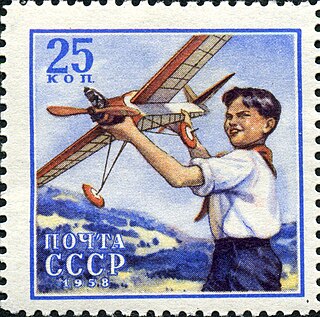Related Research Articles

Arbor Day is a secular day of observance in which individuals and groups are encouraged to plant trees. Today, many countries observe such a holiday. Though usually observed in the spring, the date varies, depending on climate and suitable planting season.

Kwanzaa is an annual celebration of African-American culture from December 26 to January 1, culminating in a communal feast called Karamu, usually on the sixth day. It was created by activist Maulana Karenga, based on African harvest festival traditions from various parts of West and Southeast Africa. Kwanzaa was first celebrated in 1966. Estimates of how many Americans celebrate Kwanzaa have varied in recent years, from as few as a half a million to as many as 12 million.

Mother's Day is a celebration honoring the mother of the family or individual, as well as motherhood, maternal bonds, and the influence of mothers in society. It is celebrated on different days in many parts of the world, most commonly in the months of March or May. It complements similar celebrations, honoring family members, such as Father's Day, Siblings Day, and Grandparents' Day.

Father's Day is a holiday honoring one's father, or relevant father figure, as well as fatherhood, paternal bonds, and the influence of fathers in society. The single most common date among world countries is the third Sunday of June, which was founded in the state of Washington, United States, by Sonora Smart Dodd in 1910.

Columbus Day is a national holiday in many countries of the Americas and elsewhere, and a federal holiday in the United States, which officially celebrates the anniversary of Christopher Columbus's arrival in the Americas. Columbus went ashore at Guanahaní, an island in the Bahamas, on October 12, 1492. On his return in 1493, Columbus moved his coastal base of operations 70 miles east to the island of Hispaniola, what is now the Dominican Republic and established the settlement of La Isabela, the first permanent Spanish settlement in the Americas.

Confederate Memorial Day is a holiday observed in several Southern U.S. states on various dates since the end of the American Civil War. The holiday was originally publicly presented as a day to remember the estimated 258,000 Confederate soldiers who died during the American Civil War.

In the United States, public holidays are set by federal, state, and local governments and are often observed by closing government offices or giving government employees paid time off. The federal government does not require any private business to close or offer paid time off, as is the case for most state local governments, so employers determine which holidays to observe.

Children's Day is a commemorative date celebrated annually in honor of children, whose date of observance varies by country. In 1925, International Children's Day was first proclaimed in Geneva during the World Conference on Child Welfare. Since 1950, it is celebrated on June 1 in many countries. World Children's Day is celebrated on 20 November to commemorate the Declaration of the Rights of the Child by the UN General Assembly on 20 November 1959. In some countries, it is Children's Week and not Children's Day. The Sikhs celebrate Children Day on 20 December to 27 December. In the U.S., Children's Day is celebrated on the second Sunday of June.

Emancipation Day is observed in many former European colonies in the Caribbean and areas of the United States on various dates to commemorate the emancipation of slaves of African descent.

Lincoln's Birthday is a legal, public holiday in some U.S. states, observed on the anniversary of Abraham Lincoln's birth on February 12, 1809, in Hodgenville, Kentucky. Connecticut, Illinois, Indiana, Michigan, Ohio, California, Missouri, and New York observe the holiday.

Mother's Day is an annual holiday celebrated in the United States on the second Sunday in May. Mother's Day recognizes mothers, motherhood and maternal bonds in general, as well as their positive contributions to their families and society. It was established by Anna Jarvis, with the first official Mother's Day celebrated through a service of worship at St. Andrew's Methodist Church in Grafton, West Virginia, on May 10, 1908. Popular observances include holiday card and gift giving, churchgoing often accompanied by the distribution of carnations, and family dinners. In the United States, Mother's Day complements similar celebrations honoring family members, such as Father's Day, Siblings Day and Grandparents Day.

World Humanist Day is a Humanist holiday celebrated annually around the world on the June solstice, which usually falls on June 21. According to Humanists International, the day is a way of spreading awareness of Humanism as a philosophical life stance and means to effect change in the world. It is also seen as a time for Humanists to gather socially and promote the positive values of Humanism.

Thanksgiving or Thanksgiving Day, is an annual Canadian holiday held on the second Monday in October. Outside of the country, it may be referred to as Canadian Thanksgiving to distinguish it from the American holiday of the same name and related celebrations in other regions.

Thanksgiving is a national holiday celebrated on various dates in October and November in the United States, Canada, Saint Lucia, Liberia, and unofficially in countries like Brazil, Germany and the Philippines. It is also observed in the Dutch town of Leiden and the Australian territory of Norfolk Island. It began as a day of giving thanks for the blessings of the harvest and of the preceding year. Various similarly named harvest festival holidays occur throughout the world during autumn. Although Thanksgiving has historical roots in religious and cultural traditions, it has long been celebrated as a secular holiday as well.

Pan American Day is a holiday observed by several countries in North and South America. It commemorates the First International Conference of American States which concluded on April 14, 1890, creating the International Union of American Republics, the forerunner to the Organization of American States (OAS). The holiday was originally proposed by the organization in 1930, and was first observed on April 14, 1930.

Indigenous Peoples' Day is a holiday in the United States that celebrates and honors indigenous American peoples and commemorates their histories and cultures. It is celebrated across the United States on the second Monday in October, and is an official city and state holiday in various localities. It began as a counter-celebration held on the same day as the U.S. federal holiday of Columbus Day, which honors Italian explorer Christopher Columbus. Many people do not observe Columbus Day at all, citing the lasting harm Indigenous tribes suffered because of Columbus's contributions to the European colonization of the Americas.

International Workers' Day, also known as Labour Day in some countries and often referred to as May Day, is a celebration of labourers and the working classes that is promoted by the international labour movement and occurs every year on 1 May, or the first Monday in May.
Father's Day is an annual holiday honoring people's fathers and celebrating the fatherhood, paternal bonds, and the influence of fathers in society. It was first proposed by Sonora Smart Dodd of Spokane, Washington, in 1909. It is currently celebrated in the United States annually on the third Sunday in June.

The Columbus Quincentenary (1992) was the 500th anniversary of Christopher Columbus' 1492 arrival in America. Similar to Columbus Day, the annual celebration of Columbus' arrival, the quincentenary was viewed contentiously, as different cultures and peoples had different ways of understanding Columbus' role in history. Certain institutions sought to celebrate this anniversary in commemoration of Columbus' momentous colonial and imperial achievements. Spain's Universal Exposition of Seville (1992) was elaborately planned to highlight Columbus' work and the overall European Age of Discovery. Italy's International Exposition of Genoa (1992) was themed "Christopher Columbus, The Ship and the Sea." In 1984, the United States designated the Christopher Columbus Quincentenary Jubilee Commission to execute a commemoration in honor of Columbus. In total, over 20 countries, including several Latin American countries and Japan, had committees to plan quincentennial celebrations.

The National Half Century Exposition and Lincoln Jubilee, was a festival from August 22 to September 16, 1915 held in Chicago, Illinois, United States. It celebrated the 50th anniversary of the emancipation of enslaved African Americans. Held at the Chicago Coliseum near Bronzeville the exhibition was also known as the National Half Century Anniversary Exposition and The Lincoln Jubilee: 50th Anniversary Celebration.
References
- ↑ Alabama (1915). Acts of the General Assembly of the State of Alabama..
- ↑ "The Fraternal monitor". 1890.
- ↑ "The Fraternal Monitor". 1916.
- ↑ http://oregonnews.uoregon.edu/lccn/sn83025138/1915-04-23/ed-1/seq-5.pdf [ bare URL PDF ]
- ↑ "Days of '49 celebration brought many thousands to Sacramento in 1922 | Valley Community Newspapers, Inc".
- ↑ "Reading Eagle - Google News Archive Search".
- ↑ "Why Fraternal Day? Alabama's odd alternative to Columbus Day, explained". 10 October 2015.
- ↑ "Fraternal Day Celebration this Sunday in Madison". 2014-10-09.
- ↑ "Celebrate Fraternal Day at the Hogan Family YMCA in Madison". 6 October 2014.